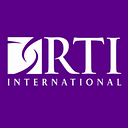How One Country is Stepping up to End Lymphatic Filariasis
Nineteen years ago, in Indonesia, a quiet but ambitious undertaking began — one that would affect millions of poor and vulnerable people. The country began working to eliminate lymphatic filariasis (LF), also known as elephantiasis, a neglected tropical disease (NTD) that can cause disability, pain, and disfigurement from swollen extremities.
Fast forward to the present, and more than 37 million Indonesians are no longer at-risk for LF. Whole communities now will not be afflicted by the physical, economic, and social toll of this disabling disease, and Indonesia is on track to eliminate LF as a public health problem in fewer than 10 years.
Indonesia’s Growing Commitment to NTDs
Starting in 2011, the U.S Agency for International Development (USAID)ENVISION Project helped Indonesia pinpoint where US support was needed through disease mapping in 164 districts. USAID also supported Indonesia’s Ministry of Health (MOH) to develop a plan to scale up mass treatment campaigns — the practice of giving medicines to all people in endemic areas — to reduce the transmission of LF.
ENVISION began working with the government to prepare a five-year strategic plan in 2015 — this planning helped stimulate the government to seek its own funding. Today, Indonesia funds 100 percent of the mass drug administration campaigns for LF. Their progress is a powerful example of how USAID can support a country to plan, implement, and finance solutions to its own development challenges.
How did it happen?
For several years, ENVISION provided funding and technical support to Indonesia’s mass treatment campaigns for LF. Each district contributed to this success through the funding of supplies at drug posts and coordination activities. Thanks to the generous donations of de-worming drugs from the pharmaceutical companies Eisai and GlaxoSmithKline, these campaigns are relatively low cost.
Meanwhile, the MOH continuously advocated — at all levels of government — for more domestic financing. As a result, in 2017, Indonesia’s president designated LF elimination as a priority health intervention, which helped to protect its budget. The MOH also secured a new national budget line to help fill gaps in district funding, received approval to use village-level development funds to support mass treatment campaigns, and obtained commitments from LF-endemic districts to increase their own budgets for treatment.
Gradually, the number of districts where mass treatment campaigns were funded domestically increased and, in 2019, all districts in Indonesia used domestic funding to implement treatment. (See below)
The government’s efforts to fund LF elimination efforts did not stop with treatment campaigns. Multiple rounds of surveys are needed after treatment is finished to ensure LF prevalence has dropped to levels where the disease should die out without further interventions. Indonesia’s network of national environmental health laboratories, called the Balai Besar Teknik Kesehatan Lingkungan (BBTKL), implements these surveys as part of Indonesia’s commitment to reach elimination. ENVISION has provided some support — helping to complete surveys in more than 45 districts and facilitating annual national training of trainers to ensure the laboratories have the most updated survey guidance. The MOH recognizes the need to leverage other resources within Indonesia’s Ministry of Health to implement all necessary surveys.
“USAID and RTI’s [ENVISION] support has had great significance, including mapping the burden of disease, distributing preventive treatments, supporting follow up surveys, and strengthening national as well as regional capacity…,” shared Dr. Elizabeth Jane Soepardi, Director of Vector Borne and Zoonotic Diseases, Indonesia Ministry of Health.
NTDs and the journey to self-reliance
The government’s leadership and its relentless — and ultimately successful — efforts to fund progress against LF is a powerful example of how USAID assists countries on their journey to self-reliance.
And Indonesia is not alone. Increasing domestic financing is a common thread across all 19 countries where USAID’s ENVISION project supports national efforts to eliminate neglected tropical diseases like LF. Encouragingly, more and more countries — such as Nepal, Benin, Ethiopia, and Nigeria — are increasing their own funding for NTD activities.
This domestic financial commitment will ensure that work to address NTDs is integrated into the DNA of health systems, and that knowledge gained from mapping, mass treatment campaigns, surveys, and other activities is available to those working on other diseases.
Around the world, NTDs like LF are being eliminated by countries that are committed and motivated to reach disease elimination goals. The results of that commitment are impressive. With USAID’s support, more than 253 million people around the world are no longer at-risk for LF.
For more than 12 years, RTI International has provided technical assistance to national neglected tropical disease (NTD) programs working towards global targets for NTD control and elimination. Through ENVISION, USAID’s flagship NTD project, RTI International supports countries in all phases of NTD program implementation — from mapping disease distribution to achieving the goal of international recognition of the control or elimination of these terrible diseases. From 2012–2017, ENVISION facilitated the global distribution of more than 417 million treatments for lymphatic filariasis.
For more on Indonesia’s efforts to fight NTDs, read The Best Medicine from USAID Indonesia.
